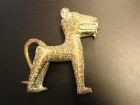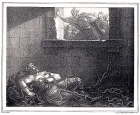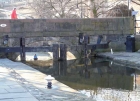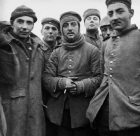Enquiries
A key cornerstone of history is historical enquiry. Quality history provision has historical enquiry at its heart. Through historical enquiry children can be shown how to ask questions, select and evaluate evidence and to make judgments about the past. It can also be a vital way of showing them that there is often more than one side to a story and that history is multi-perspective. Historical enquiry is all about asking questions or hypothesising about the past that we hope the evidence will help us to answer, but getting the enquiry question right is not always easy. In this section you will find resources and guidance that will help you to plan challenging enquiries for your children that will help them to develop as historians.
-

Eweka's story: Benin and Big Picture History
ArticleClick to view -

Film: What's the wisdom on... Enquiry questions Part 1 (Primary)
ArticleClick to view -

Film: What's the wisdom on... Enquiry questions Part 2 (Primary)
ArticleClick to view -

For whose God, King and country? Seeing the First World War through South Asian eyes
ArticleClick to view -

From Champion to Hero: Engaging Pupils in a study of significant Olympians
ArticleClick to view -

From Home to the Front: World War I
ArticleClick to view -

HA Enquiry Toolkit
ArticleClick to view -

Hearts, Hamsters and Historic Education
ArticleClick to view -

Here come the Vikings! Making a saga out of a crisis
ArticleClick to view -

History in the Urban Environment
ArticleClick to view -

Ideas for Assemblies: Lest we forget
ArticleClick to view -

Ideas for Assemblies: Refugee stories
ArticleClick to view -

In My View: Creativity & History
ArticleClick to view -

Investigating the Indus Valley (2600-1900 B.C.)
ArticleClick to view -

Investigating the ancient Olympic games: A Case Study
ArticleClick to view -

Keeping the content manageable in Key Stage 2
ArticleClick to view -

Learning Outside the Classroom
ArticleClick to view -

Learning to engage with documents through role play
ArticleClick to view -

Learning what a place does and what we do for it
ArticleClick to view -

Local History and the 2012 Olympics
ArticleClick to view

